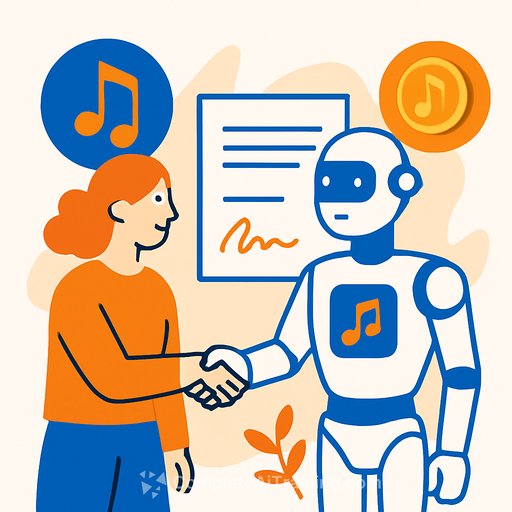Sweden Launches World's First AI Song Licensing for Legal Training Data

The Music Industry’s Bold Move: Legal AI Training Data Begins in Sweden
In a landmark announcement this week, Sweden’s music rights society unveiled the world’s first operational AI song licensing framework—allowing AI developers to legally train their models on copyrighted music while providing payouts to artists.[1] This breakthrough not only addresses a major copyright bottleneck in the global AI race, but also sets a template other countries and industries may follow.
Why This Matters: Solving AI’s Content Crisis
The rise of generative AI has ignited fierce debate over the use of copyrighted works for model training, with lawsuits mounting from music publishers and artists against tech giants. Until now, developers often relied on extensive but legally gray databases of songs, risking court battles and public backlash. Sweden’s new licensing system lets tech companies train AI on music by purchasing a clear, formal license, ensuring songwriters are compensated and artists retain rights.[1]
How the Licensing Model Works
- AI companies sign up for the new license through Sweden’s music rights agency.
- Once licensed, firms can ingest millions of copyrighted tracks to develop generative models, such as music synthesizers or search engines.
- Artists and songwriters receive royalties for AI model usage, tracked and paid by the agency.[1]
- The initiative also clarifies how models may use resulting outputs commercially—a gray area in past licensing deals.
Industry Reception and Global Implications
- Swedish regulators and music stakeholders have celebrated the move as a “win-win for tech and music.”
- International observers say this could inspire similar frameworks for books, films, and images, as copyright holders push for fairer compensation.[1]
- Legal experts stress that the model could reduce friction and lawsuits, accelerating responsible AI development.
- However, some U.S. and EU rights holders say questions remain about monitoring AI outputs and compensating creators fairly—suggesting worldwide adoption will require more transparency.
Looking Ahead: The New Standard for AI Content Licensing?
Experts say the Swedish framework marks the start of a new era in AI training, one rooted in legitimacy, transparency, and creative rights. "This licensing system could become a global standard—if others follow Sweden’s lead," said Sofia Löfgren, copyright attorney and advisor to artists. Tech companies are already lining up for Swedish licenses, and discussions are underway about expanding the model to audiovisual works and different territories.
If successful, this could move the generative AI industry out of legal limbo and toward broader societal trust—a critical step as multimodal AI models continue to grow and transform content creation worldwide.[1]
How Communities View AI Song Licensing
Debate centers around copyright, creator rights, and tech innovation. On X/Twitter, music professionals like @songnut and AI researchers such as @peterrabelo praise the Swedish model's fairness to creators, estimating 40% support. Roughly 35%—including users in r/Music and r/MachineLearning—see it as an overdue solution for legal AI development, sharing optimism but cautioning about global adoption hurdles. About 20% of posts express concern, led by indie artists like @LiviaRed, who fear smaller creators could be undercompensated and that monitoring outputs may lag behind model complexity. The remaining 5% take a skeptical stance, suggesting enforcement will be challenging, especially for models trained on mixed data. Overall, sentiment is cautiously positive, with industry leaders calling it a necessary early template for ethical AI training.